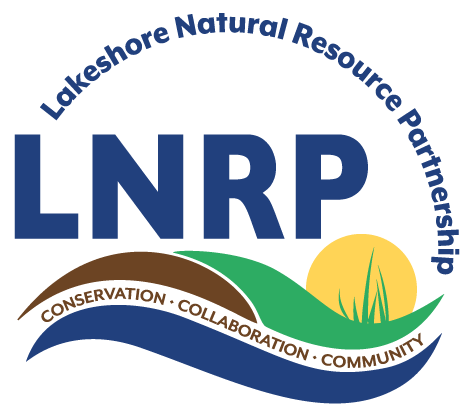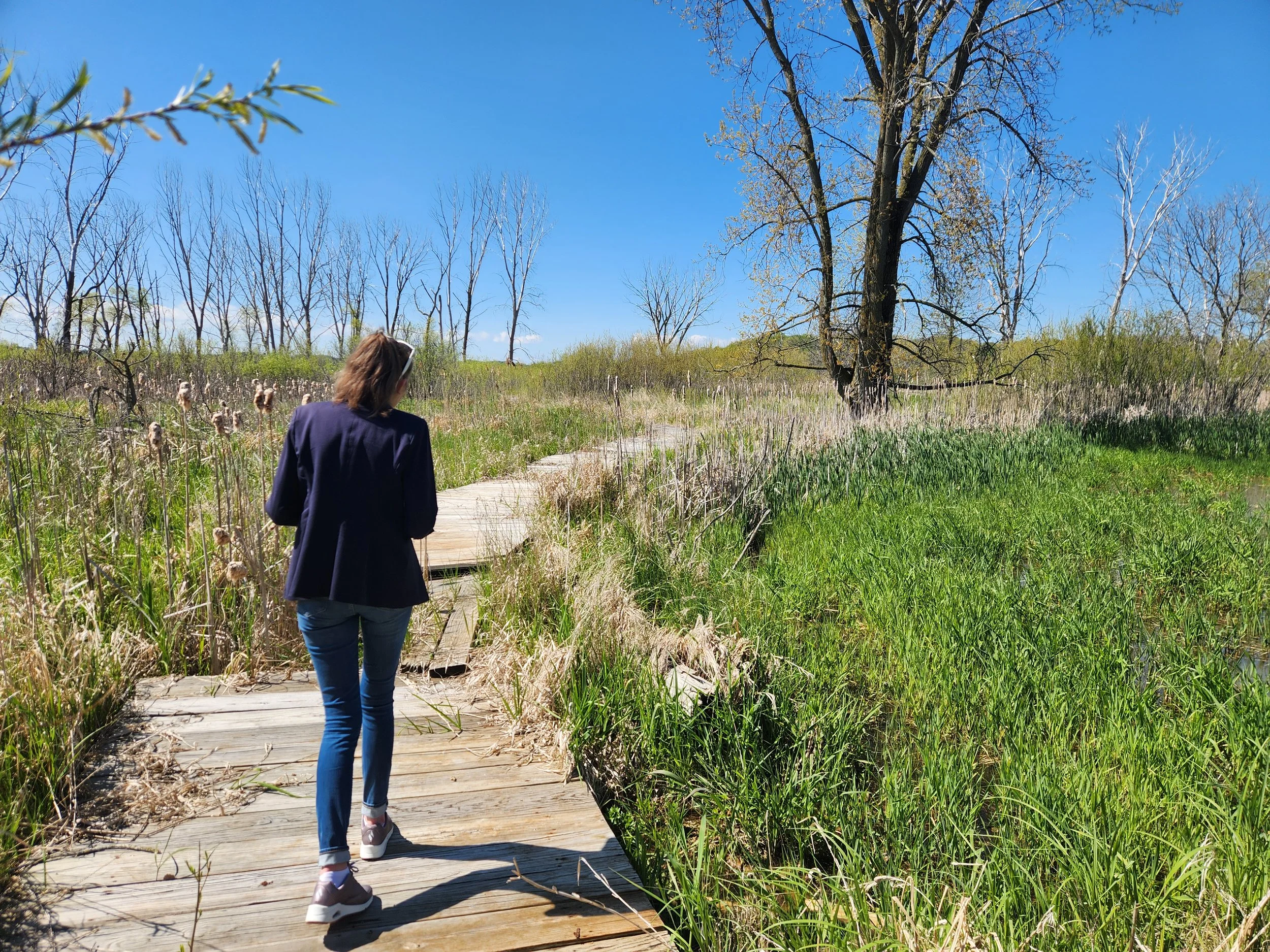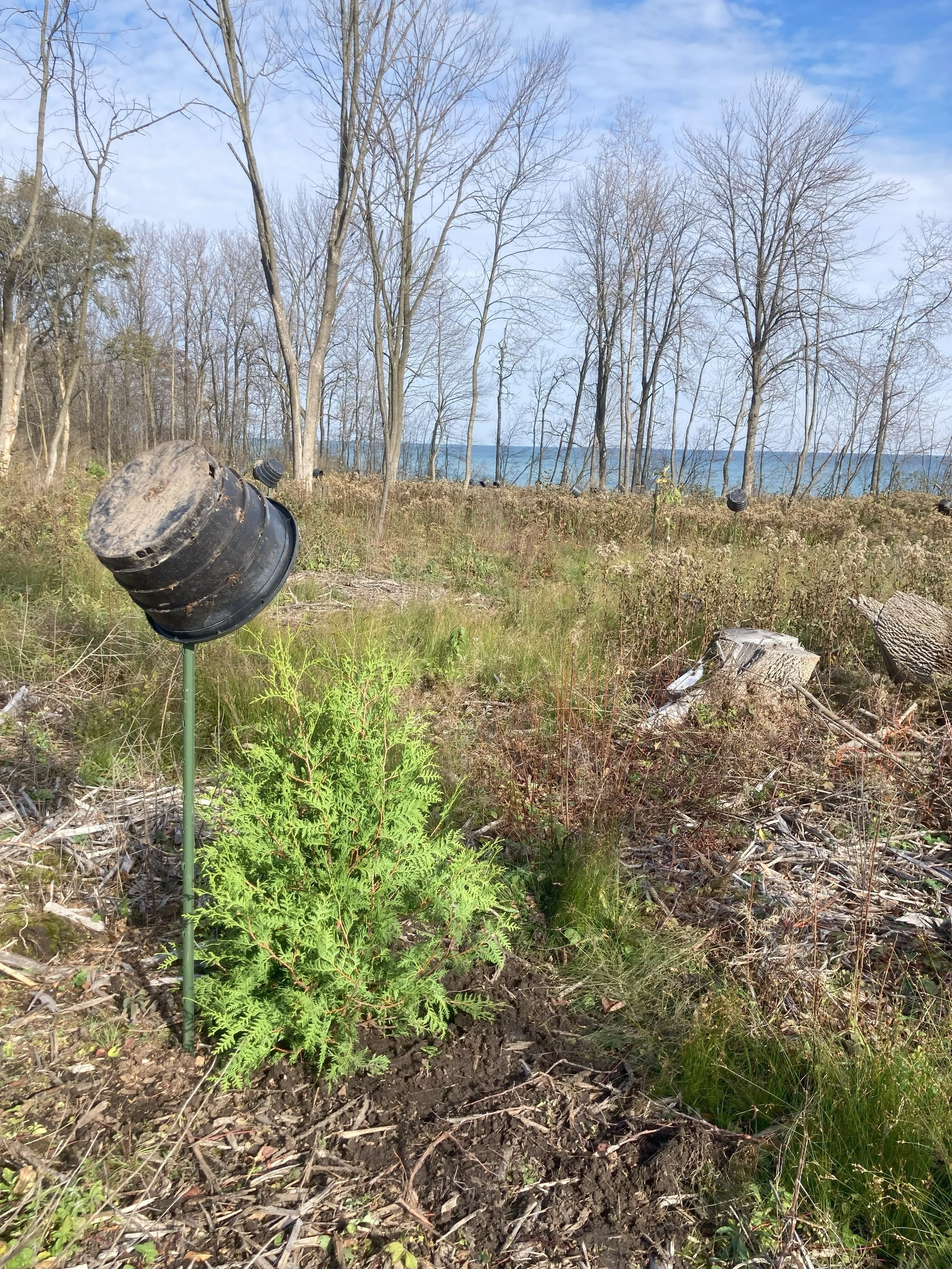The City of Kewaunee is embarking on an ambitious effort to restore the Marshland Walk, a beloved city-owned boardwalk that was severely damaged by flooding in 2020. This project is not just about rebuilding infrastructure; it represents a broader commitment to ecosystem restoration, community access to nature, and long-term coastal resilience. Through our Coastal Resilience Community Impact Project (CRCIP), Lakeshore Natural Resource Partnership (LNRP) is playing a key role in helping the City navigate the funding, planning, and implementation of this effort.
Read MoreLakeshore Natural Resource Partnership (LNRP) has teamed up with Dr. Ryan Newton and his undergraduate capstone students at UW-Milwaukee’s School of Freshwater Science (SFS) to support the ongoing restoration of the Valley Creek Corridor in Port Washington. Throughout 2024, Dr. Newton’s students have acted as a small consulting team, tasked with gathering and analyzing stream data to inform both the restoration process and future research opportunities.
Read MoreThe Great Lakes region is facing a growing array of challenges from the continual spread of invasive pests to a warming climate that brings with it new extreme weather patterns. These issues are placing unprecedented strain on our coastal habitats, endangering the ecological health of areas critical to migratory birds and other wildlife. With funding from the U.S. Forest Service and Wildlife Conservation Society, LNRP is working with a team of consultants, nonprofits, municipalities, and community members to spearhead a comprehensive tree planting initiative that tackles these environmental threats head-on.
Read MoreFor 20 years, LNRP has been committed to the ideals of conservation, collaboration, and community as we serve 2,400 square miles of the Lakeshore Basin. You can find an overview of our impact here, and we encourage you to explore the 2021-2022 Impact Report for more details, reflections, and voices!
Read MoreExtreme precipitation events, coastal storms, and fluctuating water levels pose threats to Lake Michigan coastal communities. Flooding, erosion, and storm surge can threaten properties and impair infrastructure and other assets that are vital to the region’s economic security. Agricultural and urban runoff during heavy rain events can also impair water quality in receiving water bodies, further threatening recreation and tourism. Planning, preparing for and adapting to these and other climate change hazards can enhance community resilience and strengthen coastal economies.
Read MoreIn response to the challenge of climate change, LNRP launched the Coastal Resiliency Community Impact Project (CRCIP) in late 2020 and spent 2021 engaging Lake Michigan’s coastal communities. We believe this Coastal Resiliency opportunity will prove valuable resources to our municipal partners working to identify, plan, fund, and execute relevant community projects.
Read More





